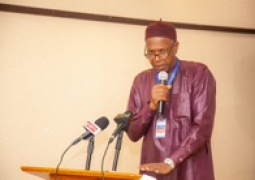
The United Nations Resident Coordinator Seraphine Wakana, said the Gambia food system is facing critical challenges in various forms which leads to hunger, poverty, food insecurity and malnutrition.
She said the UN is ready to provide support to the Gambia government for a national food system dialogue summit, and also publish the outcomes from the dialogue at the national and regional levels with technical advice support.
“Malnutrition and unhealthy diet presents an enormous risk to disease and death. It is unacceptable that hunger is on the rise at a time when the world lost more than a billion tons of food every year,” she said.
She said it is time to change how the world, especially poor countries like The Gambia, produce and consume in order to reduce greenhouse gas and transform the food system. This is important for delivery of all the sustainable development goals.
Such a summit in The Gambia will help raise global awareness and share commitment that can transform the food system and preserve hunger, reduce diet, eliminate disease and restore health, the UN Resident Coordinator said.
Amie Fabureh, the minister of Agriculture said the summit will launch both new actions to bring progress to all the 17 SDGs, particularly the degree of health and a more sustainable and equitable food system.
She explained that the goal of the world food system summit is to deliver a platform for leaders to ensure transformation to a sustainable healthy food system for people on the planet.
Jainaba Kah, the representative of the secretary general and the head of Civil Service, said in cooperation for the global summit, each member state was advised by the UN to hold national food system summit dialogue that will enable national authorities to work out a broad range of each country’s food system stakeholders; how to make significant strides to realise the national development goals.
Through this dialogue, the pathway for an equitable and sustainable national food system can be shaped and commitment can be articulated to build existing strategies in the country and the regional effort.
Therefore, all member states are expected to attend and present a clear national pathway towards a sustainable food system; the pathway that aligns with the SDGs and indicate how the SDG goals would be achieved now against the end 2030.





